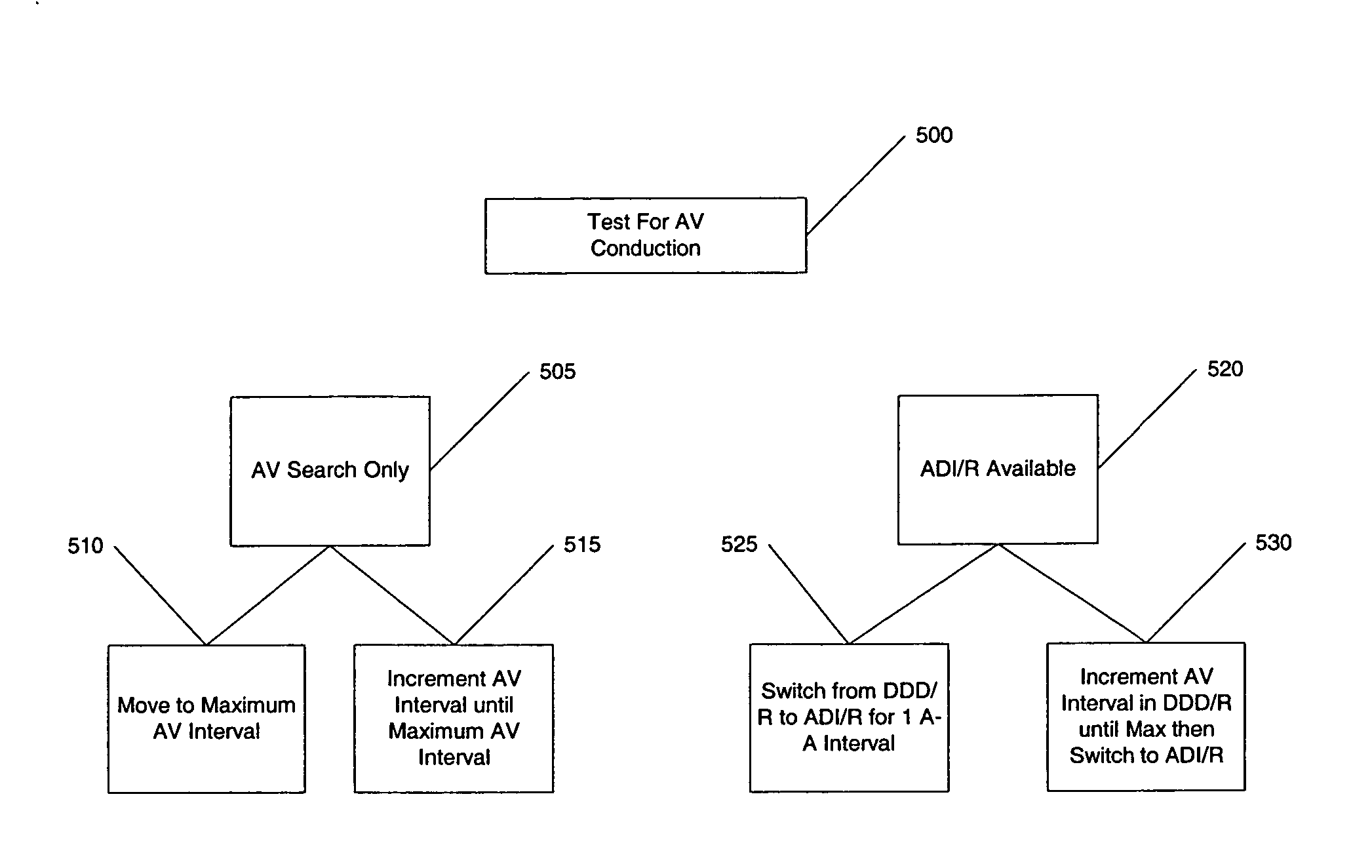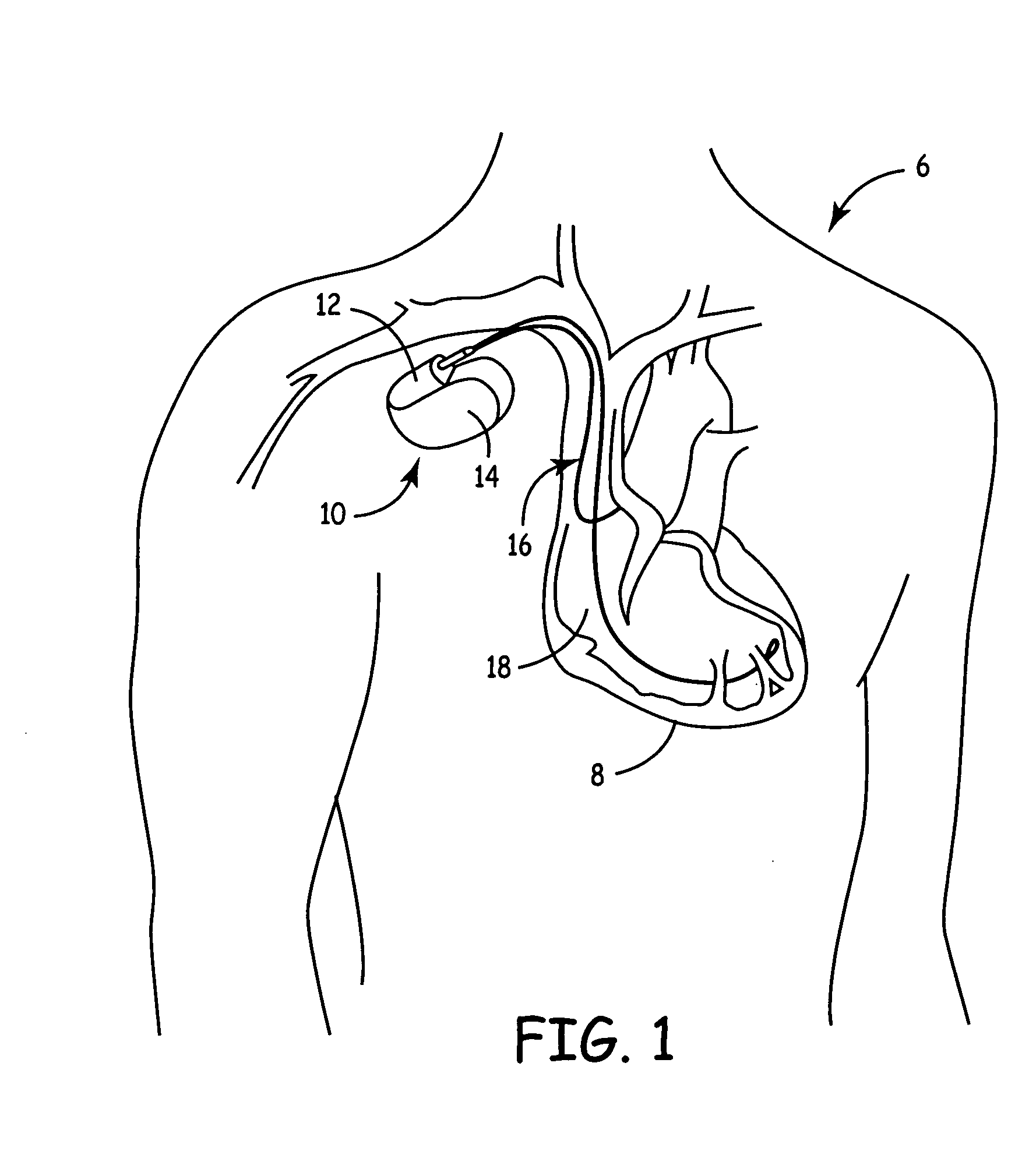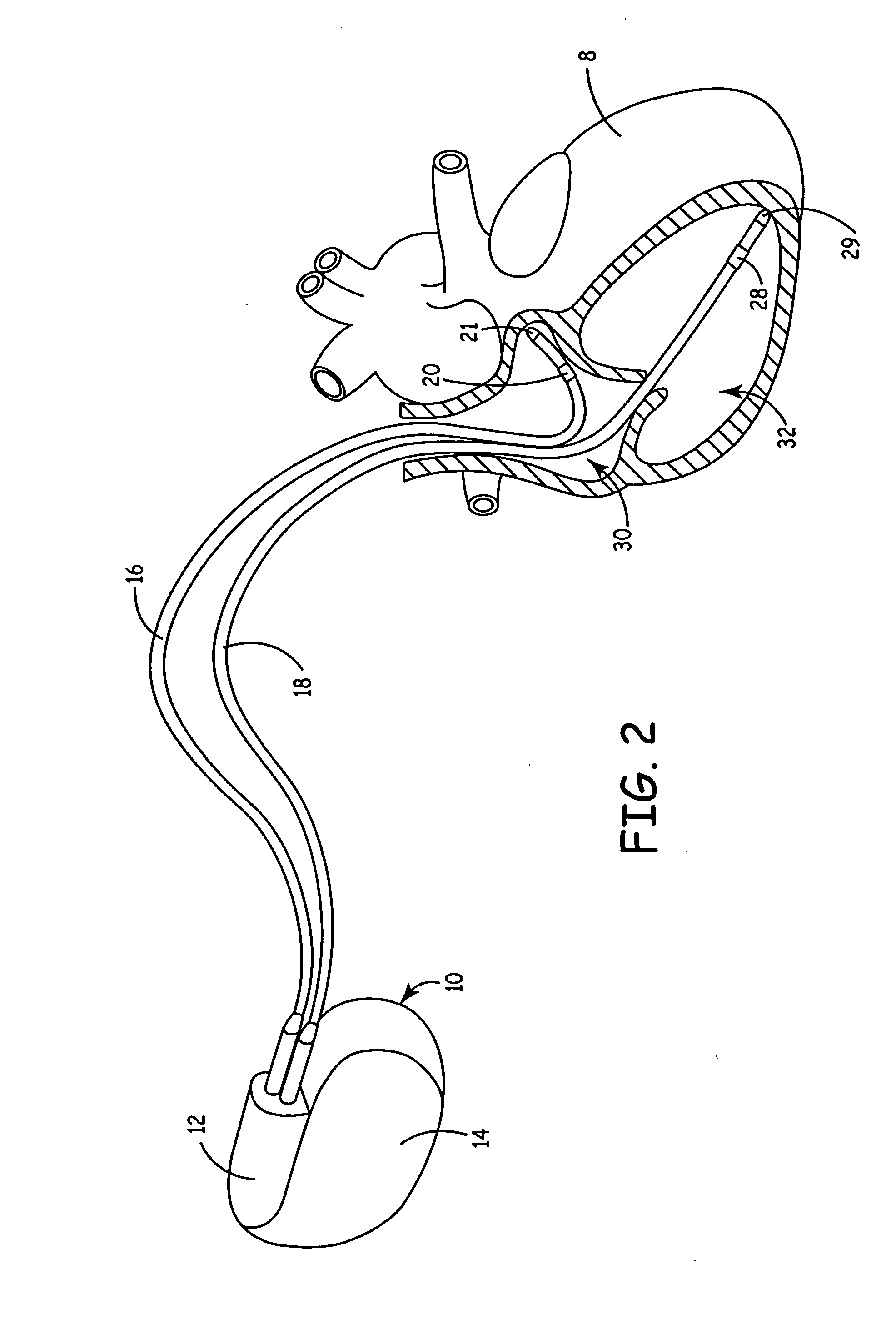Implantable medical device with ventricular pacing management of elevated heart rates
a medical device and ventricular pacing technology, applied in the field of implantable medical devices, can solve the problems of so long delay of intra-ventricular av
- Summary
- Abstract
- Description
- Claims
- Application Information
AI Technical Summary
Benefits of technology
Problems solved by technology
Method used
Image
Examples
case 1
[0084] E=10 / 100=0.1
[0085] Case 2: E=100 / 10=10
[0086] In other words, the VPP is 100 times more effective in the second case than in the first. The same formula for effectiveness can be applied to AV search attempts rather than actual mode switches. That is Nswitches is replaced with Nsearches.
[0087] The effectiveness value is used to determine the frequency at which to check for intrinsic conduction. That is, when the effectiveness value has been high, the IMD 10 will more aggressively and more frequently check for intrinsic conduction because it has been shown to be of value to this patient. Conversely, when the effectiveness value is low for a given patient, less frequent conduction checks are made because there is less expectation of success.
[0088] Furthermore, the effectiveness value E is utilized by the IMD 10 to optimize the VPP settings. That is, based upon other sensor data and / or other patient data such as cardiac output, ejection fraction, stroke volume, heart rate, pat...
PUM
 Login to View More
Login to View More Abstract
Description
Claims
Application Information
 Login to View More
Login to View More - R&D
- Intellectual Property
- Life Sciences
- Materials
- Tech Scout
- Unparalleled Data Quality
- Higher Quality Content
- 60% Fewer Hallucinations
Browse by: Latest US Patents, China's latest patents, Technical Efficacy Thesaurus, Application Domain, Technology Topic, Popular Technical Reports.
© 2025 PatSnap. All rights reserved.Legal|Privacy policy|Modern Slavery Act Transparency Statement|Sitemap|About US| Contact US: help@patsnap.com



